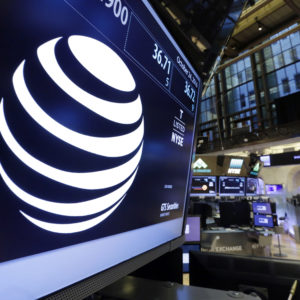The Federal Communications Commission is closing an investigation into wireless carriers who offer free data for certain video streaming apps and not others, a practice known as zero-rating.
Chairman Ajit Pai shuttered the probe late Friday over a year after it was launched by his predecessor, Democrat Tom Wheeler. Shortly before Wheeler stepped down, the agency’s Wireless Bureau released a report concluding zero-rating services by AT&T and Verizon violate net neutrality.
“Today, the Wireless Telecommunications Bureau is closing its investigation into wireless carriers’ free-data offerings,” the FCC’s new Republican chief announced. “These free-data plans have proven to be popular among consumers, particularly low-income Americans, and have enhanced competition in the wireless marketplace.”
“Going forward, the Federal Communications Commission will not focus on denying Americans free data,” Pai said.
Pai’s second move aimed at rolling back net neutrality comes less than a month after the bureau report dropped. In it the agency describes AT&T’s data-free streaming of content from subsidiary DirecTV as anticompetitive, since data streamed from competitors like Netflix and Hulu still count against subscriber data caps. Criticism centered around a new service offered by DirecTV late last year dubbed DirecTV Now.
The agency described DirecTV Now’s $35 per month price with unlimited mobile streaming for AT&T customers as price discrimination. Such pricing makes it impossible for competitors to pay AT&T to sponsor their own data on its network and still profit, violating the net neutrality rules’ general conduct standard, according to the report.
While it “expresses no concern with retail zero-rating per se,” the report says the price AT&T charges DirecTV competitors to sponsor data is higher than the cost on itself to exempt it. The bureau made a similar conclusion about Verizon’s FreeBee zero-rating program, but not T-Mobile’s Binge On.
T-Mobile charges all edge providers the same to exempt data from caps, while AT&T “does not consider zero-rating to be a real cost of business,” the report reads.
“AT&T imposes hefty per-gigabyte charges on unaffiliated third parties for use of Sponsored Data,” the Wireless Bureau wrote. “All indications are that AT&T’s charges far exceed the costs AT&T incurs in providing the sponsored data service. Thus, it would appear that AT&T’s practices inflict significant unreasonable disadvantages on edge providers and unreasonably interfere with their ability to compete against AT&T’s affiliate.”
AT&T argued its cost comes from building out its network to keep up with the increased demand for data, and warned the FCC not to take any action Republicans would likely undo, a prophecy Pai fulfilled.
“Today’s announcement is a win for the millions of consumers who are reaping the benefits of services made available through free data programs,” AT&T’s regulatory vice president Joan Marsh said Friday. “We’re pleased that these innovative products will be able to continue to flourish in the marketplace.”
Massachusetts Democrat Sen. Ed Markey blasted the closure as an attack on net neutrality.
“It is clear that net neutrality is public enemy number one for Chairman Pai, and he is starting his campaign by protecting harmful zero-rating plans,” Markey said Friday. “Zero-rating plans can allow [internet service providers] to favor their own content while putting everyone else at a competitive disadvantage.”
Markey and other Democrats on Capitol Hill, including Sens. Benie Sanders and Elizabeth Warren, encouraged the Wheeler-led agency to investigate the programs.
“Instead of siding with big corporations, Chairman Pai and the FCC should explore how to fully enforce the Open Internet Order and ensure a free and open internet for everyone,” Markey said.

